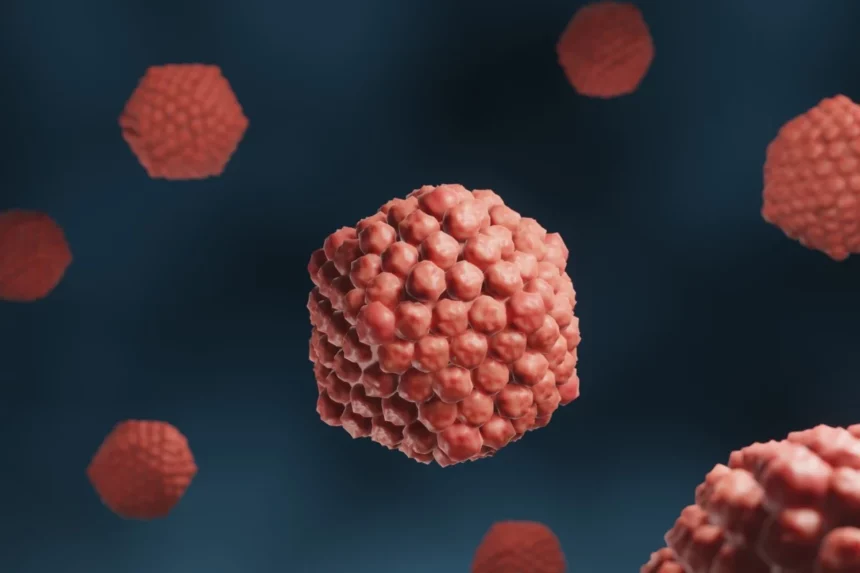An international team of biologists has identified a gene that may explain why the brain is typically protected from the herpes simplex virus (HSV), a discovery that could lead to new treatments. The World Health Organization estimates that around 67% of the global population is infected with HSV type 1, which primarily attacks nerve tissue. In rare cases, the virus can reach the central nervous system and be fatal.
The study, led by Cai Yujia from Shanghai Jiao Tong University and Søren Paludan from Aarhus University in Denmark, focused on why most carriers do not exhibit severe symptoms. Using the gene-editing tool CRISPR, the researchers discovered that the gene known as “TMEFF1” plays a crucial role in protecting the brain from HSV-1. They found that knocking out the gene in human stem cell-derived neurons led to a significant increase in HSV-1 replication. This finding was confirmed in mouse models, where the absence of the gene resulted in a notable increase in the viral load within neurons in the brain.
Published in the peer-reviewed journal Nature on July 24, the study offers new insights into the brain’s antiviral immune mechanisms. Although most HSV infections are asymptomatic, the virus can still pose significant public health risks, particularly in rare cases where it leads to herpes simplex encephalitis, a condition with a mortality rate of up to 70%.
The research team has developed peptides, smaller versions of the TMEFF1 protein, which they claim are highly effective in preventing HSV infection. This breakthrough provides a new perspective on the brain’s immune response to viral infections and could pave the way for future preventive and therapeutic treatments.
Zhao Guoping, a member of the Chinese Academy of Sciences and director of the Key Laboratory of Synthetic Biology, emphasized the significance of the discovery, stating, “The discovery enriches our knowledge of the brain’s antiviral mechanisms and provides a new scientific basis for the future development of preventive and therapeutic treatments against HSV.”

